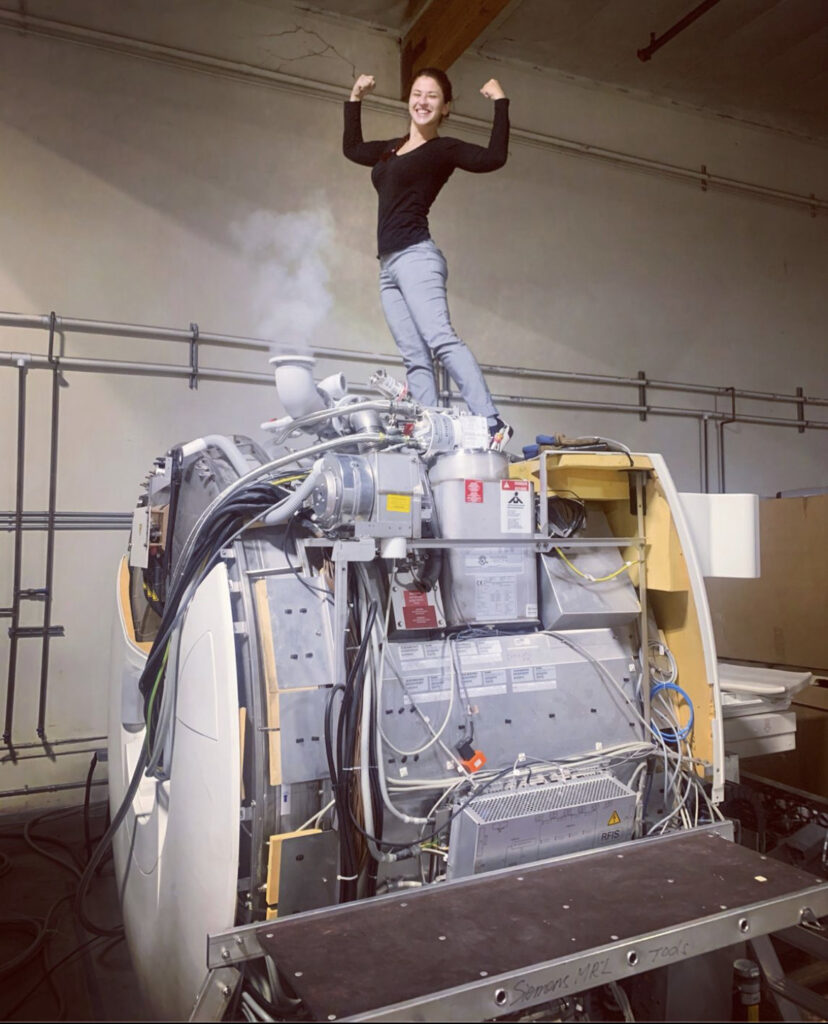
Short background bio – How did you get into the industry? Anything that drew you in?
I had a unique entry into the industry, a mix of fate and opportunity. Originally from Moldova, I moved to
the USA after my mother married an American who happened to own a service company in the Medical
Imaging field. Starting out in high school, I began by doing rolling inventory in the warehouse, gradually
moving into administrative roles. While initially pursuing marketing and interior design, life took turns
with pregnancies and family challenges. However, the stability of my job in the industry became
essential, especially as a mother of 3 (including twins). With a fresh drive and eagerness to learn, I dove
deeper into the industry, moving up from office administration to parts sales, project management, and
eventually, field service engineering.
What milestones or contributing factors helped elevate you to where you are today?
My journey into the medical imaging industry began with a fascination for its stability and the fact that it
hadn’t drastically changed since the MRI was first designed in 1972. This stability promised job security,
and I used to joke that AI wouldn’t take over this industry in my lifetime. Unexpectedly becoming a
parent further fueled my drive for stability and success, motivating me to take my job more seriously and
commit to becoming an expert in my field. Along the way, the unwavering support of my husband, the
camaraderie of dedicated colleagues, and my own strong work ethic have all played significant roles in
my professional development.
What roadblocks did you have to overcome?
Throughout my journey, I encountered several roadblocks that tested me. One significant challenge was
balancing the responsibilities of being a young parent while also striving for career advancement.
Adjusting to the unexpected demands of parenthood required me to reevaluate my priorities and find
creative solutions to manage my time.
Another obstacle was the lack of formal education in the field initially. Coming from a background in
marketing and interior design, I had to overcome the steep learning curve associated with understanding
the technical aspects of medical imaging equipment and the intricacies of healthcare operations.
As a young woman entering the medical imaging industry, I also faced significant challenges in gaining
credibility and being taken seriously. For many years, I encountered biases and stereotypes that
undermined my capabilities. Despite my experience and dedication, I often felt dismissed in professional
settings.
However, one of the most encouraging developments in recent years has been the remarkable progress
of women within the industry. Over the past five years, I have witnessed a drastic shift towards greater
recognition and opportunities for women in leadership roles and decision-making positions. Women are
no longer relegated to superficial roles or token representations at trade shows; instead, they are
actively contributing to the advancement of the industry.
What do you feel makes a great leader in this industry?
A great leader in the medical imaging industry is someone with a drive to succeed and improve the lives
of others. They communicate effectively, stay updated on industry trends, and make decisions that
benefit their team, customers and patients. Empathy, adaptability, and ethical integrity are also crucial
traits for effective leadership in this dynamic field.
What advice do you have for the other women in HTM?
My advice to other women in Healthcare Technology Management (HTM) is to focus on learning
tangible, transferable skills. While sales skills hold value, building expertise in areas like engineering or
repair technician roles offers more stability in my opinion. These skills not only boost your worth in the
industry but also lay a strong foundation for lasting success. Focus on mastering aspects such as
equipment maintenance, regulatory compliance and project management as they are in high demand
and ensure greater job security
